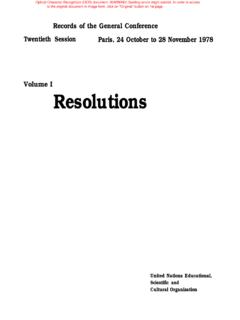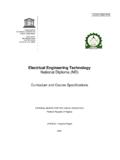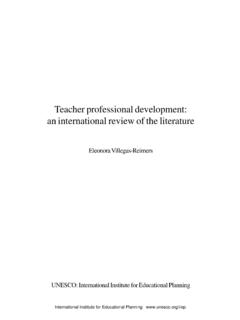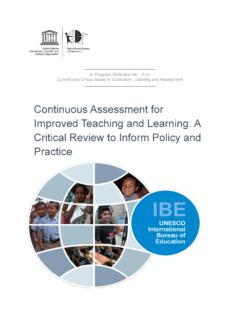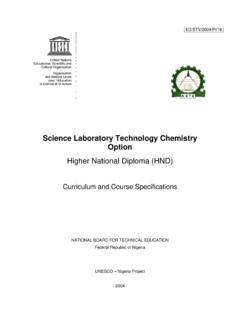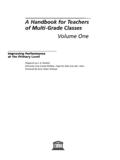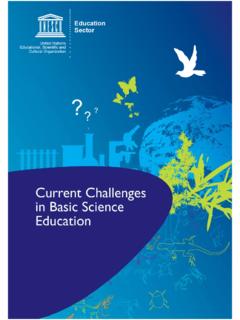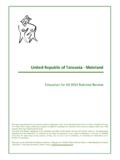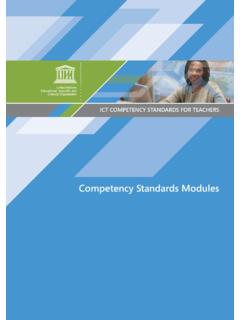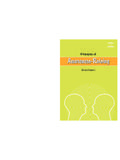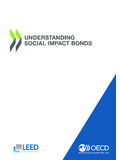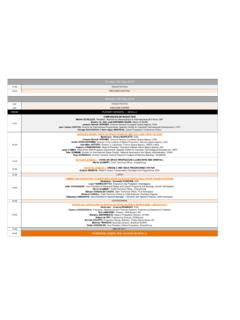Transcription of UNESCO. General Conference; 39th; 39 C/5: volume …
1 volume 1 DRAFT RESOLUTIONSF irst biennium 2018-201939 C/5 United NationsEducational, Scientific andCultural Organization2018-2021 United NationsEducational, Scientific andCultural OrganizationVolume 1 DRAFT RESOLUTIONSF irst biennium 2018-201939 C/52018-2021 Published in 2017by the United Nations Educational, Scientific and Cultural Organization7, Place de Fontenoy, 75352 PARIS 07 SPComposed and printed in the workshops of UNESCOC over photo: Shutterstock/StarLine UNESCO 2017 Printed in France39 C/5 Draft volume 1 Draft ResolutionsTable of contentsParagraphPageIntroduction by the Director- General iDraft Appropriation Resolution for 2018-2019 1 Draft Resolutions: General Policy and Direction 11 Governing bodies, Direction and Participation in the joint machinery of the United Nations system 00100 11 Programmes Major Programme I Education 01000 13 Major Programme II Natural Sciences 02000 27 Intergovernmental Oceanographic Commission 03000 30 Major Programme III Social and human sciences 04000 32 Major Programme IV Culture 05000 34 Major Programme V Communication and Information 06000 36 UNESCO Institute for Statistics (UIS)
2 07000 39 Management of Field Offices 08000 41 Programme-Related Services Coordination and monitoring of action to benefit Africa 09100 42 Coordination and monitoring of action to implement gender equality 09200 44 Strategic planning 09300 46 Organization-wide knowledge management 09400 49 External relations and public information 09500 50 Field support and coordination 09600 53 Participation Programme and FellowshipsParticipation Programme 10000 54 Fellowships Programme 55 Corporate Services Human resources management 11000 56 Financial management 12000 57 Management of support services 13000 58 ICT infrastructure and operations 14000 59 Management of security and safety 15000 60iIntroduction by the Director-GeneralThe present Draft Programme and Budget for 2018-2021 (39 C/5) covers the second and final quadrennium of the Organization s Medium-Term Strategy for 2014-2021 (document 37 C/4). It is consistent with the guiding principles, mission statement, functions, overarching and strategic objectives, and global priorities defined therein and is guided by the decisions taken by Member States at the 38th session of the General conference as well as the deliberations of the Executive Board at its 200th session on my Preliminary Proposals.
3 Overall, it also builds on past achievements and lessons learned, including the recommendations of relevant evaluations and findings of programme assessment exercises (see for example the Strategic Results Report in199 EX/4, Part I, B). The Draft 39 C/5 reflects my vision to further sharpen UNESCO s action and response to contemporary challenges by delivering fully on UNESCO s mandate and its five functions defined in the Medium-Term Strategy (37 C/4), while at the same time supporting Member States to take the 2030 Agenda for Sustainable Development as well as the Paris Climate Agreement forward. It seeks to maintain the capacity of UNESCO to carry out its statutory functions under the several Conventions and international/intergovernmental programmes in its care. The Draft 39 C/5 is underpinned by the following guiding principles: (i) responding to a changing global environment by embedding the principles of the 2030 Agenda into UNESCO s programmes and adapting approaches through new partnerships and stronger integration within the United Nations system; (ii) reinforcing UNESCO s action in favour of its two global priorities Africa and gender equality, as well as responding to the specific needs of least developed countries (LDCs), small island developing States (SIDS) and youth; (iii) better responding to Member States needs by improving programme design and implementation, in particular in the Field.
4 (iv) delivering UNESCO s programmes in a more integrated manner through sharpening programme focus and strengthening interdisciplinary and intersectoral with the Paris Climate Agreement, the 2030 Agenda constitutes a paradigm shift for international cooperation and development, focusing on sustainable development, and also recalling the values of peace, cultural diversity and human rights. All 17 Sustainable Development Goals are interdependent and call for new intersectoral approaches and partnerships. The hallmark of this new agenda is a set of principles which have guided UNESCO in the preparation of its Draft Programme and Budget for 2018-2021; these include national ownership; universality; inclusivity ( leaving no one behind ); the fight against poverty and the reduction of inequalities; the overarching goal of peace, peaceful societies, intercultural understanding and global citizenship; the fight against gender inequality; supporting populations most in need, in particular in crisis, conflict and disaster situations.
5 To these ends, the new Agenda places strong emphasis on the essential role of education and skills, knowledge, science, technology and innovation, and of ICTs in knowledge-driven societies; and gives also unprecedented recognition of cultural heritage and cultural diversity, all of which resonate at the heart of UNESCO s action. In these ways, the 2030 Agenda is a reminder of the abiding relevance of UNESCO s mandate and priorities in addressing today s challenges. It connects directly with UNESCO s constitutional mission to contribute to the building of peace, the eradication of poverty, sustainable development and intercultural dialogue through education, the sciences, culture, communication and information . It also makes it a duty for the Organization to focus on human rights and dignity as the starting point of the Organization s action, with a clear focus on the most disadvantaged and excluded groups, as well as countries and segments of societies furthest C/5 Dra IntroductionThis is why, in spite of a severely constrained budget, the principles of the 2030 Agenda have been, at all levels, and in many different ways, built into UNESCO s Draft Programme and Budget for 2018-2021, including through a commitment to greater integrated approaches in supporting the goals of Member States.
6 With this 39 C/5, the Organization will continue to promote gender equality as a global priority and to supporting countries in Africa in all of its programmes, while also mainstreaming specific interventions for youth, LDCs, SIDS, and marginalized social and ethnic groups, including indigenous peoples and local communities. The Draft 39 C/5 is also based on a continued commitment to providing special assistance to countries in conflict and crisis, or affected by disasters, while helping countries strengthen resilience through preventive , building on a thorough global mapping of UNESCO s contribution to the SDGs, the Draft 39 C/5 highlights how the Organization intends to further embed the 2030 Agenda s principles into its programmes by providing demand-driven, evidence-based normative and policy advice in its areas of competence, by developing benchmarking and reporting instruments of value to the international community, and delivering capacity-building, including on data collection and analysis.
7 The Draft 39 C/5 reflects and gives support to the direct contributions made by UNESCO to nine of the Sustainable Development Goals (as presented in document 200 EX/13 Part I), and highlights the impact of the Organization across all goals, particularly the global goals aimed at reducing inequalities and eradicating alignment with the new global development agenda and in response to 38 C/Resolution 104, the Draft 39 C/5 also proposes a series of new and innovative features in the way it is designed: The focus of the programmes has been sharpened with emphasis placed on the Organization s comparative advantages and added value: the number of main lines of actions has been further reduced from 16 in the 38 C/5 to 11 in the Draft 39 C/5, and expected results have been substantially reduced also. Drawing on past experiences and lessons in the implementation of the flagship programmes, Global Priority Africa is fully translated in programmatic action throughout all major programmes building on a more integrated programming approach, including in results formulation and target-setting.
8 In addition, targeted interventions and intersectoral approaches will be enhanced to plan and deliver support to Member States in the implementation of the SDGs and the African Union 2063 Agenda, in particular, as concerns priority areas falling under UNESCO s mandate, in view of addressing national needs and priorities. In pursuance of the Governing Bodies decision, the Intergovernmental Oceanographic Commission (IOC) is now presented in a stand-alone chapter of the C/5, thus highlighting its specific functioning, intervention modalities and key role in the achievement of the SDG 14 on the Ocean for which it has been entrusted the UN custodianship role for two targets. The Organization s long-term vision for the Global Priority gender equality, as defined in the Medium-Term Strategy for 2014-2021 and reiterated in the Gender Equality Action Plan II, continues to guide UNESCO s Programme and Budget for 2018-2021.
9 UNESCO s programmes build, therefore, on the results achieved in the previous quadrennium through its two-pronged approach of gender mainstreaming and gender-specific programmes, and the Organization will continue to advance gender equality, including providing support to Member States in its fields of competence for the achievement of SDG 5. In addition, the Draft 39 C/5 reflects sustained efforts to harness further the Organization s multi- and inter-disciplinary expertise and to enhance intersectorality as a core comparative advantage. The Organization s strategies in specific interdisciplinary areas such as the Operational Strategy on Youth (2014-2021), the Plan of Action and the Implementation Strategy on SIDS, the draft updated Strategy for action on Climate Change will be implemented through actions planned by the concerned major iiiii39 C/5 Dra Introductionprogrammes.
10 Focus is placed on developing innovative cooperative initiatives, in particular at country level where the value and relevance of intersectoral engagement is the highest, and would more effectively respond to Member States growing needs for complex, interdisciplinary responses. A maximum financial and staffing flexibility will be applied, to ensure the full mobilization of UNESCO s teams around common issues. For the first time, and in compliance with Member States decisions, UNESCO s C/5 Budget is based on an Integrated Budget Framework, allowing greater transparency of resources, and helping the Organization to align all of its resources on the priorities designated by the General conference . This will facilitate the Structured Financing Dialogues, bringing together the Secretariat with its Member States and the donor community at large, to jointly ensure the funding necessary for the implementation of the programme and achievement of the expected results.
